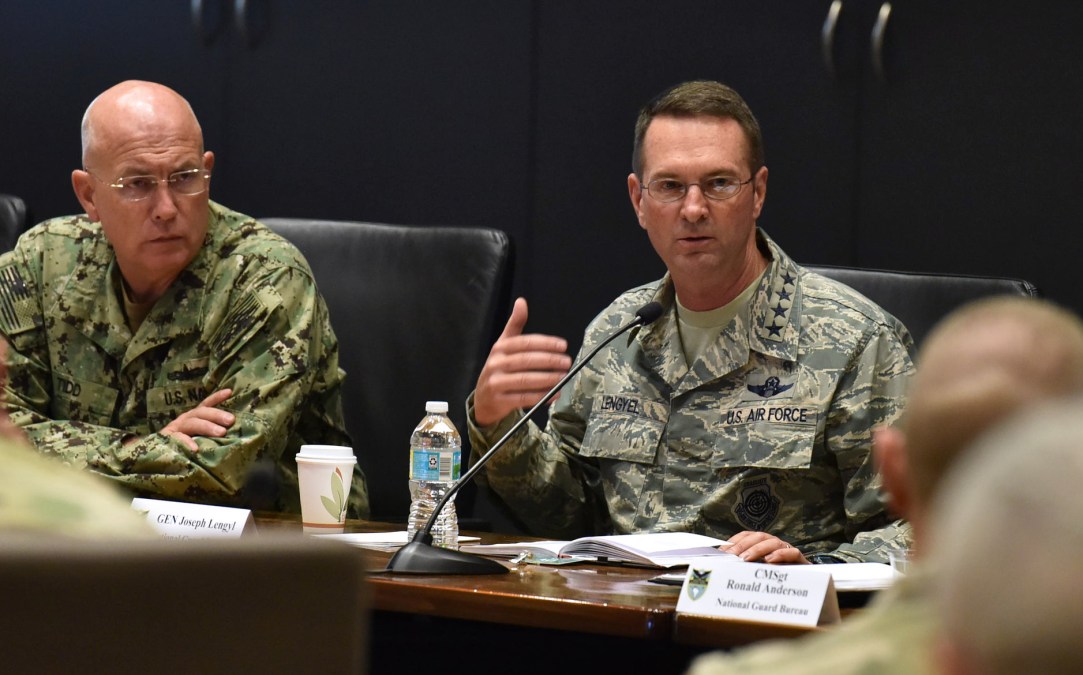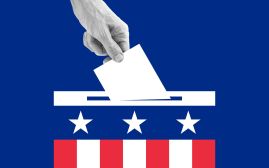National Guard chief expects expanded role in 2020 election security

The top general in charge of the National Guard said he expects more states will deploy their guards’ cybersecurity personnel to safeguard voting systems during the 2020 presidential election.
Air Force Gen. Joseph Lengyel, addressing reporters Tuesday at a Pentagon briefing, said that 27 governors activated their National Guards in the run-up to the 2018 elections, and that several states that held elections this week have done the same, with little evidence of the same active threats from nations like Russia that were prevalent in 2016. But Lengyel said that protecting election infrastructure is likely to be an ongoing part of the National Guard’s cybersecurity role, especially working in tandem with civilian authorities like secretaries of state and boards of elections.
“Election network security is a very state-centric thing,” he said. “We’re an additive measure that can augment state response entities.”
Nationwide, there are 59 National Guard cybersecurity units, comprising nearly 3,900 uniformed personnel. Lengyel said that the leadership of every state’s guard has been trained about potential cyberattacks against election systems, adding that in 2018, U.S. Cyber Command brought every adjutant general to Colorado for a threat briefing.
“2018 was fairly successful,” said Col. Sam Kinch, a National Guard adviser to U.S. Cyber Command. “There was persistent engagement. What we’re trying to do now from Cyber Command is not only enable states to defend themselves, and then, if they need, ask for help, but also enable Cyber Command to go after that foreign adversary.”
One of the first states to engage its National Guard in election security was Washington, where Secretary of State Kim Wyman signed a July 2018 memorandum to bring in soldiers and airmen trained in cybersecurity to assist her office’s internal IT staff in protecting assets like the statewide voter registration database. On Tuesday, Major General Bret D. Daugherty, the adjutant general of the Washington National Guard, said he will soon be renewing that agreement with Wyman’s office through the 2020 election cycle.
Under that arrangement, Daugherty told reporters, a 10-person team made up of Army and Air Guard troops will survey the Washington Department of State’s network for vulnerabilities, develop a plan to mitigate any potential flaws identified and work to repel unauthorized intrusions into the system.
“In the ‘protect’ phase, we have that team on hand right up to the election helping monitor the network looking for any bad actors,” he said.
Daugherty also said the Washington National Guard’s workforce benefits from proximity to major technology firms headquartered in Seattle, like Microsoft and Amazon, as well as aerospace companies like Boeing, which has a large presence in state.
Even though other states don’t enjoy Washington’s tech-heavy talent pool, Lengyel predicted more than 27 states will put their Guards’ cybersecurity teams on election duty next year.
“I would offer there will be more,” he said. “But that’s up to the individual states.”
The National Guard’s Pentagon briefing came the same day that seven federal agencies, including the Defense Department, issued a joint statement that the U.S. government would continue to support election-security efforts that began last year.
“Building on our successful, whole-of-government approach to securing the 2018 elections, we have increased the level of support to state and local election officials in their efforts to protect elections,” the statement read. “The federal government is prioritizing the sharing of threat intelligence and providing support and services that improve the security of election infrastructure across the nation.”






